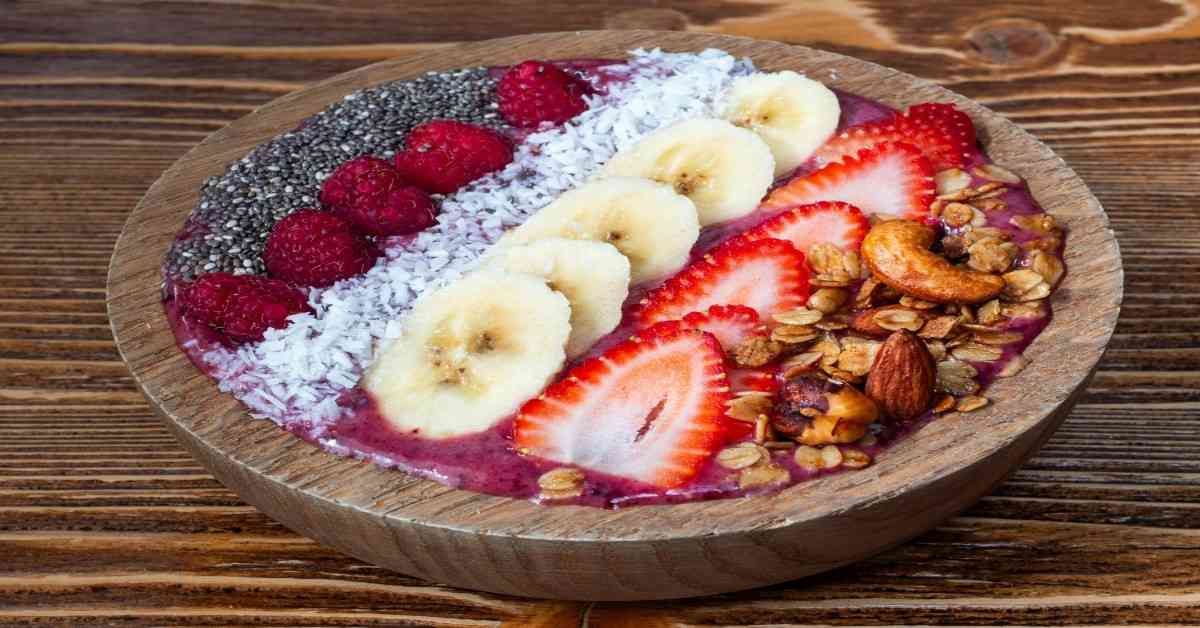Winter is the season to nurture your body and mind with wholesome and hearty winter diet that provide warmth and immunity. While the colder months may limit some fresh produce, nature still offers a bounty of nutrient-rich superfoods perfect for this time of year. This guide explores the hidden gems of winter nutrition, their health benefits, and how to incorporate them into your meals.
Click Here: Thyroid Health 101: If You’re Affected, Here’s What You Need to Know
Why Focus on a Winter Diet?
The change in seasons affects our metabolism, energy levels, and immune response. Our bodies need more energy to stay warm, fight off seasonal illnesses, and maintain optimal health. A winter diet, rich in superfoods, helps:
- Strengthen Immunity: Combat colds and flu with foods high in vitamins, antioxidants, and minerals.
- Improve Skin Health: Cold air often leads to dryness. Superfoods hydrate and protect your skin.
- Enhance Energy Levels: Nutrient-dense foods keep you energized during shorter daylight hours.
By tailoring your diet to the season, you not only meet your nutritional needs but also indulge in comforting, seasonal flavors.
Hidden Winter Superfoods to Elevate Your Diet
1. Seasonal Fruits: The Sweet and Tangy Protectors
Winter is the perfect time to enjoy citrus fruits like oranges, grapefruits, and tangerines. These fruits are packed with Vitamin C, which boosts immunity and promotes glowing skin. Guavas, apples, and pomegranates are also rich in antioxidants and fiber.
Health Benefits:
- Vitamin C: Enhances collagen production and fights infections.
- Fiber: Supports gut health and keeps you feeling full longer.
- Antioxidants: Combat oxidative stress and inflammation.

How to Incorporate:
- Add pomegranate seeds to salads for a burst of flavor.
- Enjoy a citrus smoothie as a morning pick-me-up.
- Bake apples with cinnamon for a comforting dessert.
2. Leafy Greens: Nutritional Gold Mines
Leafy greens like spinach, kale, mustard greens (sarson), and fenugreek (methi) thrive in winter. These vegetables are loaded with iron, calcium, and vitamins A, C, and K, which are essential for bone health and immune function.
Health Benefits:
- Iron: Prevents anemia and boosts energy levels.
- Calcium: Strengthens bones and teeth.
- Vitamin K: Essential for blood clotting and bone health.
How to Incorporate:
- Blend kale into smoothies for a nutrient boost.
- Cook traditional dishes like sarson ka saag with cornmeal flatbreads.
- Toss spinach into soups or pasta for added nutrients.
3. Root Vegetables: Nature’s Comfort Foods
Root vegetables like sweet potatoes, carrots, turnips, and beets are excellent sources of fiber, beta-carotene, and complex carbohydrates. They provide sustained energy and help maintain stable blood sugar levels.
Health Benefits:
- Beta-Carotene: Supports vision and skin health.
- Fiber: Aids digestion and keeps you satisfied.
- Antioxidants: Reduce inflammation and lower the risk of chronic diseases.
How to Incorporate:
- Roast sweet potatoes with olive oil and rosemary.
- Prepare hearty beet soups or salads.
- Use carrots in stews, curries, or as a snack with hummus.
4. Nuts and Seeds: Portable Powerhouses
Almonds, walnuts, sesame seeds, and flaxseeds are winter staples rich in healthy fats, proteins, and essential vitamins. They are easy to snack on and can be added to various dishes.
Health Benefits:
- Healthy Fats: Support heart health and brain function.
- Vitamin E: Protects skin from dryness.
- Minerals: Promote bone strength and energy production.
How to Incorporate:
- Add a handful of nuts to your breakfast porridge.
- Prepare sesame ladoos (Indian sweet balls) for a nutritious snack.
- Sprinkle flaxseeds on yogurt or salads for extra crunch.
5. Turmeric: The Golden Healer
Turmeric is a staple spice with powerful anti-inflammatory and antioxidant properties. Curcumin, its active ingredient, has been studied for its ability to fight infections and improve overall health.
Health Benefits:
- Anti-Inflammatory: Reduces joint pain and inflammation.
- Antioxidant: Protects cells from damage.
- Immune-Boosting: Enhances the body’s natural defense mechanisms.
How to Incorporate:
- Add turmeric to soups, curries, or rice dishes.
- Prepare golden milk with turmeric, milk, and honey.
- Use it as a spice rub for roasted vegetables.

6. Legumes: Protein-Rich Comfort
Legumes like lentils, chickpeas, and kidney beans are versatile and nutrient-dense. They provide plant-based protein, essential for muscle repair and energy production.
Health Benefits:
- Protein: Supports muscle repair and growth.
- Iron: Boosts energy and prevents fatigue.
- Fiber: Improves digestion and controls blood sugar levels.
How to Incorporate:
- Cook lentil soups with warming spices like cumin and turmeric.
- Add chickpeas to salads or roast them for a crunchy snack.
- Use kidney beans in stews or chili for a hearty meal.
7. Ghee: A Traditional Superfood
Ghee, or clarified butter, is a warming food that has been used in Indian cooking for centuries. It is rich in healthy fats and aids digestion.
Health Benefits:
- Healthy Fats: Support energy production and brain health.
- Vitamin A: Promotes eye and skin health.
- Digestive Aid: Helps in the absorption of fat-soluble vitamins.
How to Incorporate:
- Use ghee to cook vegetables or stir-fries.
- Add a teaspoon to dal (lentils) or rice.
- Spread it on rotis (Indian flatbreads) for a traditional touch.
8. Winter Spices: Small Yet Mighty
Spices like cinnamon, ginger, and black pepper are essential for winter cooking. They enhance flavors and offer medicinal properties.
Health Benefits:
- Cinnamon: Stabilizes blood sugar levels and reduces inflammation.
- Ginger: Soothes digestion and fights colds.
- Black Pepper: Enhances nutrient absorption and warms the body.
How to Incorporate:
- Sprinkle cinnamon on baked goods or oatmeal.
- Brew ginger tea with honey and lemon.
- Use black pepper in soups or marinades.
Tips for a Balanced Winter Diet
- Prioritize Seasonal Produce: Opt for locally grown, seasonal fruits and vegetables for maximum freshness and nutrients.
- Stay Hydrated: Drink warm herbal teas, soups, or broths to keep hydrated.
- Focus on Warm Foods: Choose cooked dishes over raw salads to support digestion during winter.
Click Here: 12 Reasons to Shell Out for Sunflower Seeds
Conclusion: Nourish Your Body, Embrace the Season
A well-planned winter diet can do wonders for your health and well-being. By incorporating these hidden winter superfoods, you’ll not only enjoy delicious meals but also support your body through the challenges of the cold season. Experiment with recipes, share with loved ones, and make winter a time of vibrant health and happiness.
FAQs
What is a winter diet?
A diet that focuses on seasonal foods, warming meals, and nutrient-dense ingredients suitable for cold weather.
Why is it essential to adjust my diet in winter?
To boost immunity, maintain energy, and combat the effects of colder weather on metabolism and health.
What are some key foods to include in a winter diet?
Root vegetables, citrus fruits, whole grains, nuts, seeds, and lean proteins like fish and chicken.
Which seasonal fruits are best for winter?
Oranges, grapefruits, apples, and pears, rich in vitamins and antioxidants.
Are root vegetables necessary in a winter diet?
Yes, they provide fiber, vitamins, and natural warmth.
How do warming spices benefit a winter diet?
Spices like ginger, turmeric, and cinnamon have anti-inflammatory properties and help keep the body warm.
Should I eat more calories during winter?
It depends on your activity level. A slight increase may help maintain body temperature but avoid overeating.
What are the best beverages for winter health?
Herbal teas, warm water with lemon, and broths.
Is it necessary to take supplements during winter?
Vitamin D supplements can be beneficial due to reduced sunlight exposure.
What are winter superfoods?
Foods like kale, sweet potatoes, quinoa, and almonds that provide high nutritional value.
Can a winter diet help prevent colds?
Yes, consuming immunity-boosting foods like citrus fruits and ginger helps.
Are soups good for winter?
Yes, they are warming, hydrating, and nutrient-rich.
How does hydration impact a winter diet?
Staying hydrated supports metabolism and prevents dryness despite reduced thirst.
What foods should I avoid in winter?
Sugary snacks, fried foods, and processed items that lower energy levels.
Do citrus fruits boost immunity?
Yes, they are rich in Vitamin C, which strengthens the immune system.
Are there specific breakfast ideas for winter?
Oatmeal with nuts and fruits, or whole-grain toast with avocado.
How does eating seasonally impact health?
Seasonal foods are fresher, more nutritious, and better for digestion.
Can a winter diet aid in weight loss?
Yes, a balanced diet with lean proteins and low-calorie foods supports weight management.
What are good snack options in winter?
Nuts, seeds, yogurt, and roasted chickpeas.
What is the role of fats in a winter diet?
Healthy fats like avocado and olive oil provide energy and maintain skin health.
Are fermented foods useful in winter?
Yes, they support gut health and immunity.
Can I enjoy desserts on a winter diet?
Opt for healthy options like baked fruits or dark chocolate.
How can I maintain energy during winter?
Include complex carbs, proteins, and stay active.
What are common winter nutrition mistakes?
Skipping meals, overeating comfort foods, and neglecting hydration.
How can vegetarians plan a winter diet?
Focus on legumes, root vegetables, whole grains, and dairy.
What are high-protein foods for winter?
Eggs, fish, lentils, and chicken.
How does soup boost winter health?
Provides hydration, nutrients, and warmth.
Is there an ideal winter meal plan?
Yes, one that balances proteins, carbs, fats, and seasonal produce.
What role does exercise play with a winter diet?
Exercise complements the diet, boosting metabolism and mood.
How do I manage cravings in winter?
Snack on nuts or fruits and avoid processed sugars.
Are smoothies appropriate for winter?
Yes, if made with warming spices and seasonal fruits.
What grains are best for winter?
Quinoa, barley, and oats are hearty and nutritious.
Can dairy be part of a winter diet?
Yes, opt for low-fat or fortified dairy.
Are there special considerations for children’s winter diets?
Ensure they consume enough Vitamin D, calcium, and seasonal fruits.
What’s the best way to prepare winter vegetables?
Roasting or steaming retains nutrients.
How can I enhance immunity naturally?
Include foods like garlic, ginger, and turmeric.
Are legumes suitable for winter meals?
Yes, they provide protein and are versatile.
Should I eat more fiber in winter?
Yes, to aid digestion and prevent constipation.
What healthy fats should I include?
Nuts, seeds, and avocados.
How does sleep affect winter nutrition?
Poor sleep impacts metabolism and immunity.
Can herbal teas replace water?
They can complement hydration but don’t fully substitute water.
What are common mistakes in a winter diet?
Overeating comfort foods and neglecting exercise.
Are frozen vegetables okay for winter?
Yes, if fresh options aren’t available.
Can I enjoy coffee on a winter diet?
Yes, in moderation without added sugar.
Is intermittent fasting suitable for winter?
It can be, but adapt it to your energy needs.
What is the best winter meal for dinner?
Soups, stews, or grilled fish with vegetables.
Can a winter diet improve skin health?
Yes, foods like nuts and fish contain essential nutrients for skin hydration.
What is a good post-workout meal in winter?
A protein shake or grilled chicken with vegetables.
Are energy bars suitable in winter?
Homemade ones with nuts and seeds are better than store-bought.
How do I deal with low energy in winter?
Consume balanced meals, exercise, and stay hydrated.

